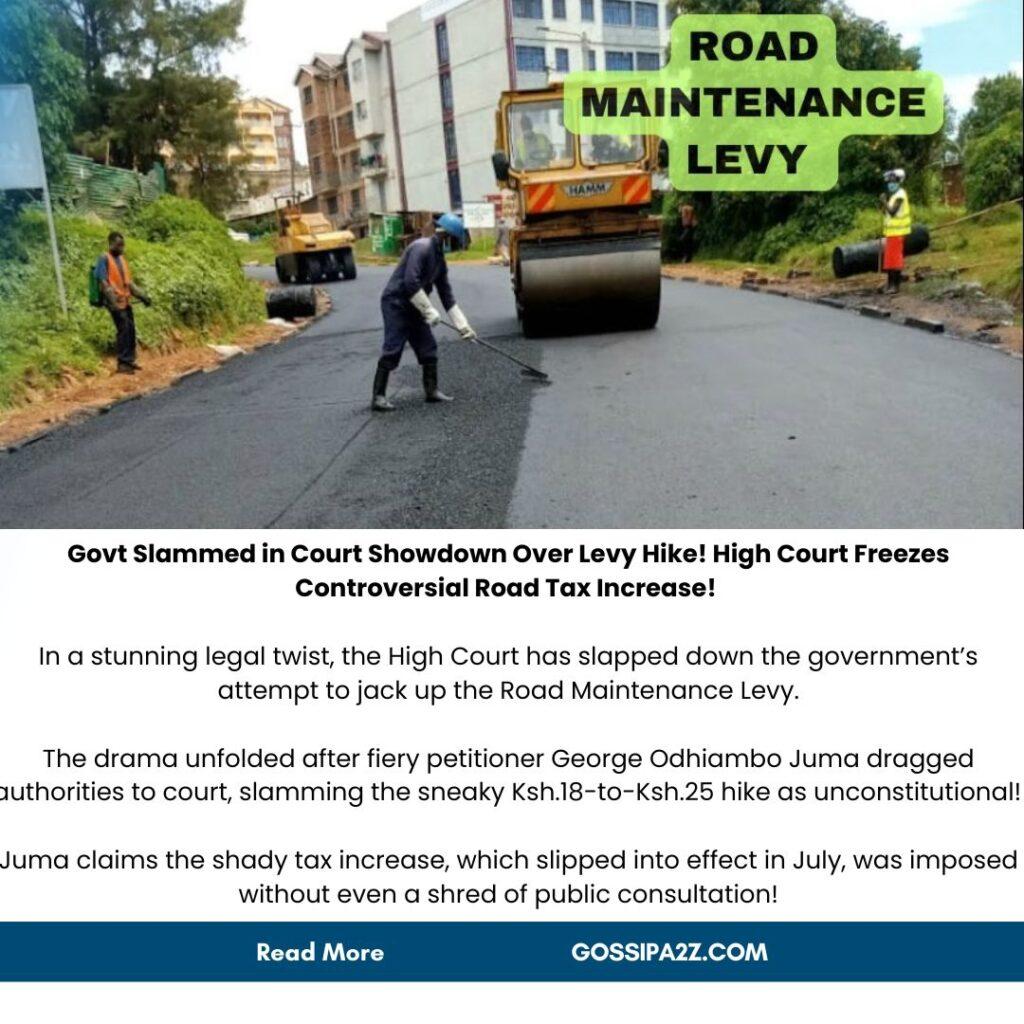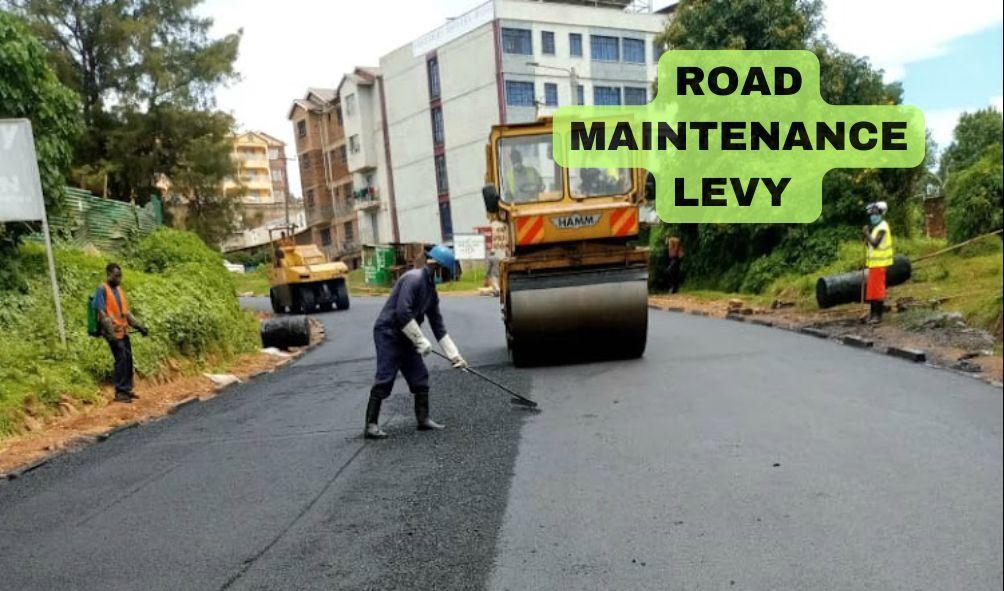High Court Rules Road Levy Hike Unconstitutional
The High Court has issued a significant order blocking the government from implementing an increase in the Road Maintenance Levy Fund (RMLF), following a petition brought forward by George Odhiambo Juma.
Juma contested the legality of the hike, which saw the levy rise from Ksh. 18 to Ksh. 25 per liter, a change implemented in July 2024.
The petitioner argued that the adjustment was unconstitutional and that the process lacked adequate public participation.
“Pending the hearing of the Notice of Motion dated 2nd August 2024 interprets, a conservatory order is hereby issued, restraining the Respondents, either jointly and or severally, whether by themselves, their officers, agents, employees or other person or entity acting under the Respondents’ instructions, from implementing and enforcing the Road Maintenance Levy Fund (Imposition) Order 2024,” reads the order.

The Road Maintenance Levy is a critical component of road funding in Kenya. It is charged directly at the pump for every liter of petrol, diesel, or kerosene purchased by motorists.
The levy is intended to finance the upkeep and improvement of the country’s road network.
According to the Kenya National Highways Authority (KeNHA), the funds collected through this levy are used to enhance the quality of existing roads, ensuring they remain safe and reliable for public use.
ALSO READ:
- Under and Over 7 — when the rules are simple, but the emotions are intense
- CAF Trophy Hunt: Win iPhone, MacBook, PlayStation, and other prizes in 1xBet promo!
- Rigathi Gachagua Responds to Raila Odinga’s Claim That He Can’t Fix Kenya’s Problems
- Miguna Miguna Criticizes New IEBC Chair Erastus Ethekon, Calls Him a Ruto Ally- ‘Not Independent’
- Matiang’i: No Scores to Settle, I Just Want to Fix My Country
However, Juma’s challenge centers on the alleged lack of sufficient public involvement in the decision-making process that led to the levy increase.
He contends that such a move should involve comprehensive stakeholder engagement to meet constitutional requirements.
The Constitution of Kenya mandates that any decisions with far-reaching implications, especially those involving financial burdens on the public, must include adequate consultations and contributions from citizens.
The court’s interim order is a reprieve for motorists, as it prevents any further implementation of the levy until the legal questions surrounding it are resolved.
This case could set an important precedent in matters involving public finance and constitutional compliance, particularly regarding the necessity of public participation in government decisions.
As the legal battle unfolds, the spotlight is likely to remain on whether the government followed due process in imposing the new levy and whether the decision aligns with both constitutional principles and public interests.
The outcome could have broader implications for similar government actions in the future.
High Court Rules Road Levy Hike Unconstitutional
